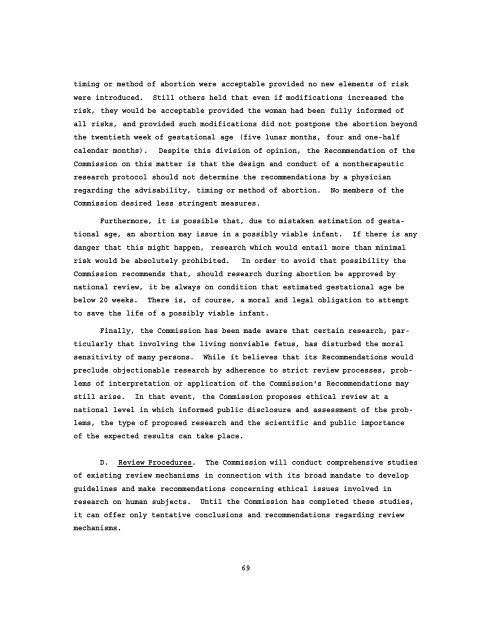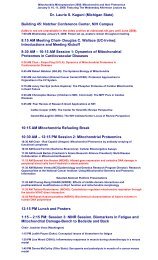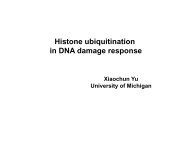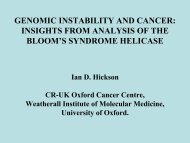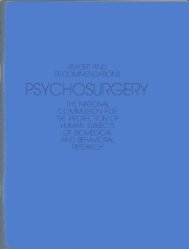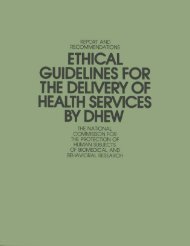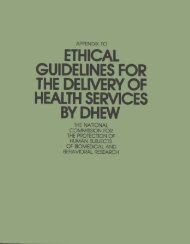RESEARCH ON THE FETUS - National Institutes of Health
RESEARCH ON THE FETUS - National Institutes of Health
RESEARCH ON THE FETUS - National Institutes of Health
Create successful ePaper yourself
Turn your PDF publications into a flip-book with our unique Google optimized e-Paper software.
timing or method <strong>of</strong> abortion were acceptable provided no new elements <strong>of</strong> risk<br />
were introduced. Still others held that even if modifications increased the<br />
risk, they would be acceptable provided the woman had been fully informed <strong>of</strong><br />
all risks, and provided such modifications did not postpone the abortion beyond<br />
the twentieth week <strong>of</strong> gestational age (five lunar months, four and one-half<br />
calendar months). Despite this division <strong>of</strong> opinion, the Recommendation <strong>of</strong> the<br />
Commission on this matter is that the design and conduct <strong>of</strong> a nontherapeutic<br />
research protocol should not determine the recommendations by a physician<br />
regarding the advisability, timing or method <strong>of</strong> abortion. No members <strong>of</strong> the<br />
Commission desired less stringent measures.<br />
Furthermore, it is possible that, due to mistaken estimation <strong>of</strong> gestational<br />
age, an abortion may issue in a possibly viable infant. If there is any<br />
danger that this might happen, research which would entail more than minimal<br />
risk would be absolutely prohibited. In order to avoid that possibility the<br />
Commission recommends that, should research during abortion be approved by<br />
national review, it be always on condition that estimated gestational age be<br />
below 20 weeks. There is, <strong>of</strong> course, a moral and legal obligation to attempt<br />
to save the life <strong>of</strong> a possibly viable infant.<br />
Finally, the Commission has been made aware that certain research, particularly<br />
that involving the living nonviable fetus, has disturbed the moral<br />
sensitivity <strong>of</strong> many persons. While it believes that its Recommendations would<br />
preclude objectionable research by adherence to strict review processes, problems<br />
<strong>of</strong> interpretation or application <strong>of</strong> the Commission's Recommendations may<br />
still arise. In that event, the Commission proposes ethical review at a<br />
national level in which informed public disclosure and assessment <strong>of</strong> the problems,<br />
the type <strong>of</strong> proposed research and the scientific and public importance<br />
<strong>of</strong> the expected results can take place.<br />
D. Review Procedures. The Commission will conduct comprehensive studies<br />
<strong>of</strong> existing review mechanisms in connection with its broad mandate to develop<br />
guidelines and make recommendations concerning ethical issues involved in<br />
research on human subjects. Until the Commission has completed these studies,<br />
it can <strong>of</strong>fer only tentative conclusions and recommendations regarding review<br />
mechanisms.<br />
69


